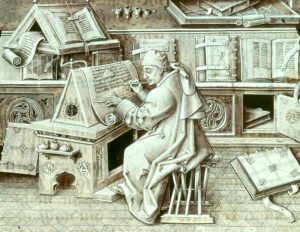Did you know that in recent years, as technology and social media have developed, libraries and museums have been turning to their visitors to help with all kinds of projects, from transcription to data gathering? Whether you're a history buff with extra time on your hands because of shelter-in-place orders, or you just want the youngster in your life to learn how to read cursive, future historians will thank you for taking the time to transcribe documents that libraries and museums have scanned and posted but that cannot currently be fully searched. And you'll likely learn a thing or two yourself as you read the primary sources of history.
Library of Congress: By the People
The Library of Congress is seeking help with transcribing documents focused on a few different topics. This year marks the 100th anniversary of women's suffrage, and you can transcribe items related to the fight for women's right to vote. Spanish speakers are also sought to help transcribe legal pages related to Spanish colonial history.
National Archives Citizen Archivist Dashboard
The National Archives seeks help with transcribing documents, as well as adding descriptive tags to items to make them more searchable. You can choose from a variety of topics including material from presidential libraries, President Franklin D. Roosevelt's speeches, documents related to creating the Alaskan highway system, sources related to the Amistad and more.
Newberry Transcribe: Uncover Everyday Life During the 19th and Early 20th Centuries
If you're looking for history a little closer to home, check out the transcription opportunities from Chicago's Newberry Library. These projects focus on family life in the Midwest through letters and diaries, Native American history and expansion in the American West. Get there fast because many of the transcriptions have been completed already.
Smithsonian Digital Volunteers: Transcription Center
The Smithsonian's crowd-sourced projects are extensive and draw from across its broad network of museums and institutions. As such, the topics are also wide ranging, from African American history and the Freedman's Bureau to biodiversity to art and design to world cultures. A wide variety of formats is also available here, including transcription of written documents as at the other sites, as well as audio files and scientific specimen description.
Become a Wikipedia Editor
The above projects deal with making primary sources more accessible and searchable. Becoming a Wikipedia editor moves in a different direction to use the primary sources to help write or edit entries in the world's encyclopedia. Once you have the hang of editing, you may wish to join a Wikipedia edit-a-thon, such as this one from the National Library of Medicine, which asks people to help make Wikipedia's health topics more reliable by citing sources from the NLM.
Happy history-making!



Add a comment to: Citizen Archivist: 5 Sites Where You Can Help Unlock the Past